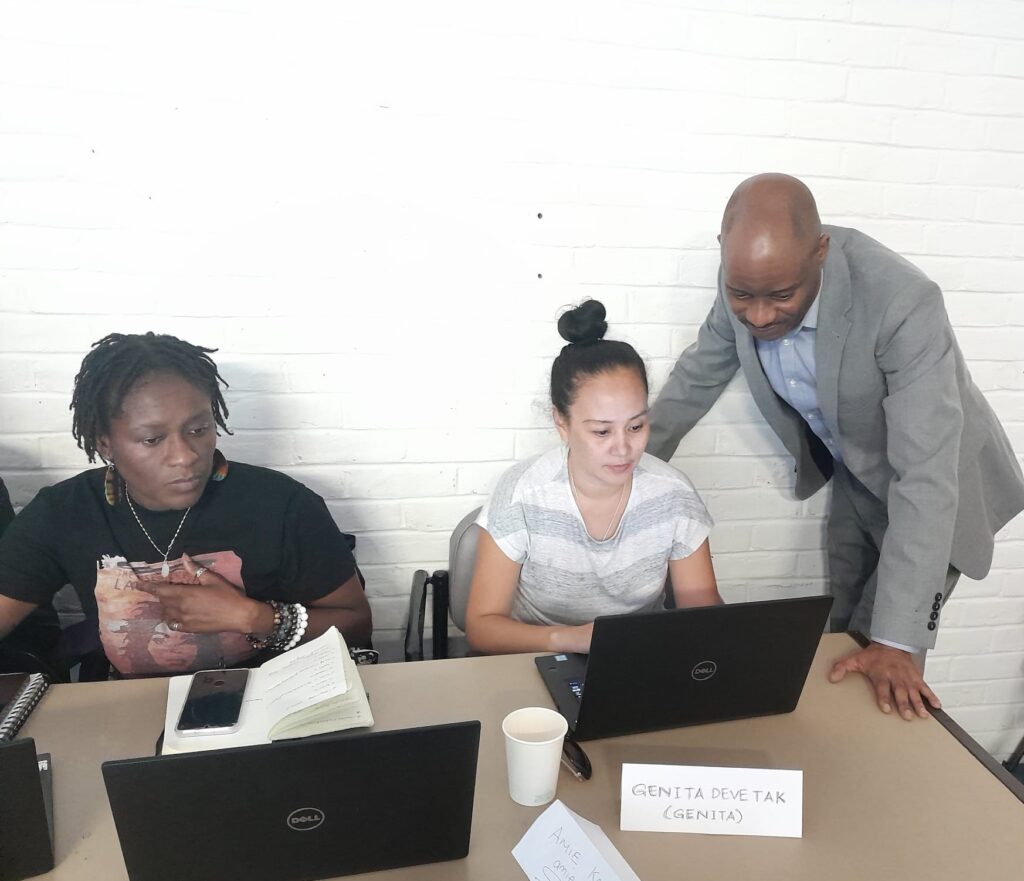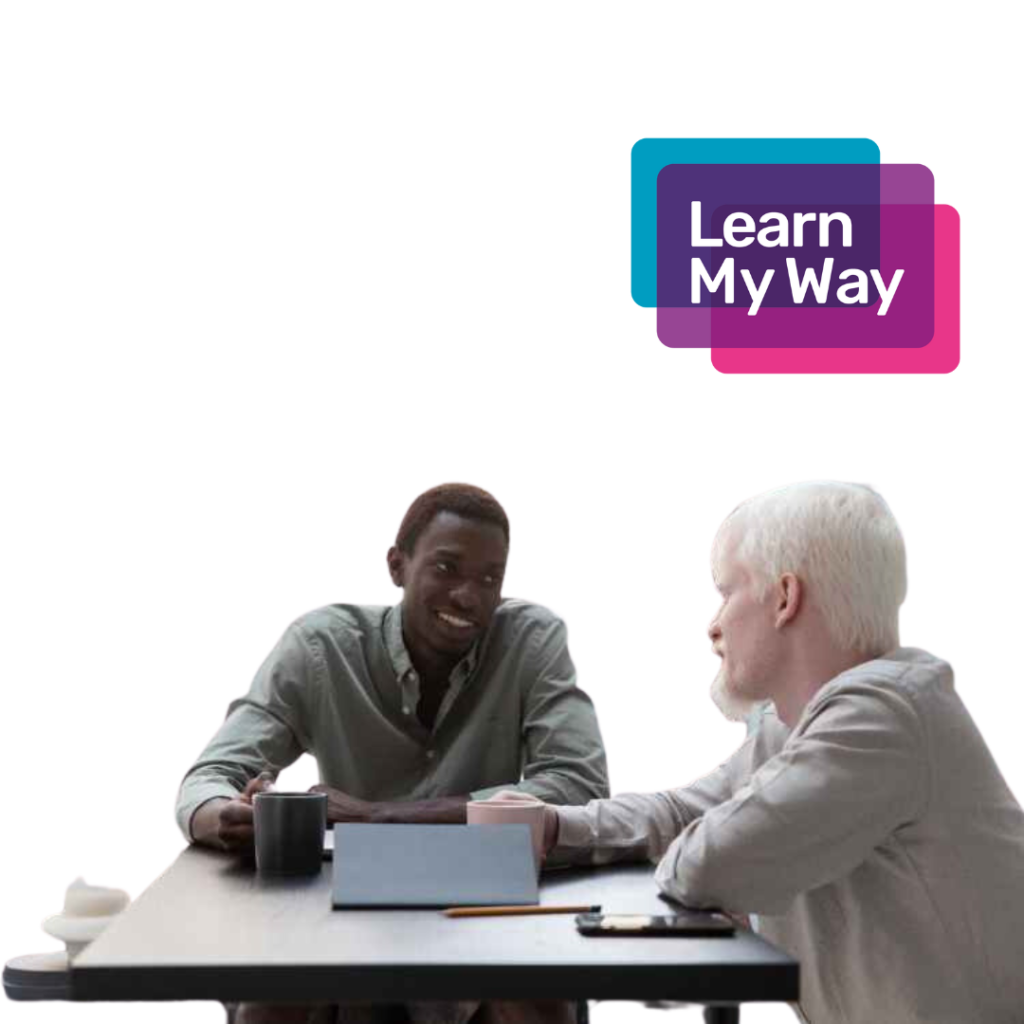1M people at risk of digital exclusion supported through Good Things Foundation
On the morning of 29th April 2025, my first email of the day was from the Good Things Foundation. The subject line immediately caught my attention: “You helped us reach a milestone.” It wasn’t just a message — it was a moment.
I’ve followed the work of Good Things Foundation since 2007, long before meeting Helen Milner, their CEO, at the launch of Web Roots Democracy in 2015/16. That encounter was particularly meaningful for me. Helen was leading large-scale digital inclusion efforts in the real world, while I was exploring similar goals through the lens of gaming and play. Her success and leadership reaffirmed the direction of my own work with IFB Gaming.
The email shared something extraordinary: together, we have now supported over 1 million people at risk of digital exclusion. It’s a milestone that speaks volumes.
At IFB Gaming, we’re incredibly proud to contribute to this collective achievement through the National Digital Inclusion Network. It’s a testament to the power of collaboration, shared learning, and a unified approach to tackling digital inequality. Through standardised training modules, inclusive knowledge-sharing, and strong networks, we are proving what is possible when purpose and partnership align.
What’s Next for IFB Gaming?
1. Tackling Digital Exclusion
“Following the launch of the UK Government’s Digital Inclusion Action Plan, making a clear commitment to addressing digital inclusion – Helen Milner (CEO of Good Things Foundation) has challenged companies to do the same.”
At IFB Gaming, our mission has always been to create inclusive, digitally connected communities through innovation, play, and purpose-driven collaboration. As we look ahead, we’re proud to share that our work is evolving — expanding beyond Southwark to reach more like-minded organisations across London and the UK.
We remain firmly committed to demonstrating practical, sustainable uses of technology. Our ongoing collaboration with Community TechAid exemplifies this approach, showing what’s possible when grassroots ingenuity meets community need. Together, we are not only closing the digital divide — we’re laying the foundations for a circular tech economy that values reuse, access, and inclusion.
To support this expansion, we’re also introducing new Data Waypoints across Southwark and beyond — trusted hubs where people can safely access data, devices, and digital guidance tailored to their needs.
This is more than growth. It’s impact with intent. And it’s only possible because of the partnerships, people, and communities that power everything we do.
2. Engaging one million people
Reaching one million people at risk of digital exclusion is a milestone worth celebrating — and we’re honoured to have played a part in it. Led by the Good Things Foundation, this achievement is more than a number; it represents a shared commitment to inclusive, equitable access to the digital world.
At IFB Gaming, our Empowering Futures initiative is grounded in research, learning, and collaboration. As a hybrid organisation focused on the intersection of play, digital skills, and social change, we view the work of Good Things Foundation as instrumental to our mission and model.
We are proud to stand alongside such a dedicated, forward-thinking group. Together, we are shaping a more inclusive, more connected world — from one organisation, one opportunity, and one initiative at a time.
3. Get Online Week 2025
Get Online Week is an annual campaign that champions digital inclusion across the UK, encouraging people to improve their digital skills and access the benefits of being connected.
At IFB Gaming, we proudly ran our first Get Online Week campaign in 2015. This year marks our 10th consecutive year of participation — a significant milestone in our ongoing commitment to bridging the digital divide.
Our 2023 campaign had a particularly powerful impact, earning us a nomination for the Southwark Business Excellence Award in the Contribution to Community category. It was also featured in Community Southwark’s Success Stories, recognising the meaningful difference our work continues to make at the grassroots level.
As we prepare for this year’s campaign, we remain as committed as ever to ensuring no one is left behind in the digital age.
Network’s next steps
Good Things Foundation has issued a timely call to action to FTSE 250 companies, urging them to take responsibility and lead on digital inclusion. The appeal could not come at a more critical moment. It aligns perfectly with the UK Government’s renewed focus on digital inclusion, the introduction of coalition guides, and our purpose at the National Digital Inclusion Network. This isn’t just policy — it’s a movement. And you can be part of it.
At IFB Gaming, we believe that genuine digital inclusion is only possible through a dual approach — one that drives change from the bottom up and the top down. While our community-first work continues through the Empowering Futures programme, we also recognise the urgent need for systemic action from industry leaders, policymakers, and institutions.
We are proud to stand at this intersection — where grassroots impact meets structural advocacy. In the months ahead, we will continue to diversify our Empowering Futures programme across London, expanding our reach and deepening our engagement with underserved communities and like-minded organisations. Central to this effort is the rollout of additional Data Waypoints — trusted spaces where individuals can access connectivity, tools, and tailored digital support.
This is our commitment: to build inclusive digital futures not just by responding to need, but by reshaping the systems that create and sustain exclusion.
Whether you’re a corporate leader, a community organiser, or a concerned citizen, the time to act is now. Let’s build a digitally inclusive society — together, from every direction.









